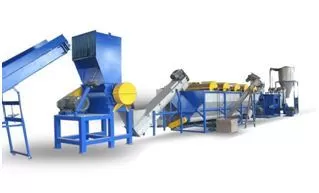As the CEO of Amige, I’ve always been captivated by the transformative power of recycling technologies, particularly in the realm of plastics. Today, I’m diving deep into the environmental scene of Suriname—a country that’s not often in the limelight but is making strides in plastic management.

Suriname, with its lush landscapes and rich biodiversity, faces significant environmental challenges, notably plastic pollution. How is this small nation addressing such a monumental issue?
Let’s explore Suriname’s journey from being a bystander in environmental health to becoming a proactive guardian of nature.
What Is the Current State of Environmental Pollution in Suriname?
Suriname’s environmental issues mirror those of many developing countries. Industrial growth, urban expansion, and a lack of stringent waste management protocols have historically contributed to widespread environmental degradation, particularly plastic pollution.
Plastic waste, both from domestic production and riverine deposits from neighboring regions, accumulates extensively, affecting both terrestrial and aquatic ecosystems.
The picturesque Surinamese landscapes are unfortunately marred by the sight of discarded plastics, which threaten wildlife and clog waterways.
How Severe Is Plastic Pollution in Suriname?
The severity of plastic pollution in Suriname cannot be overstated. With limited recycling infrastructure and public awareness, plastic waste is often disposed of improperly.
Estimates suggest that tons of plastic are dumped into Suriname’s rivers annually, contributing to a larger regional crisis in South America.
This crisis is not just a local issue but a regional call to action, as the rivers become conduits of pollution flowing to the Atlantic.
What Steps Are Being Taken to Improve Plastic Recycling in Suriname?
In recent years, Suriname has taken proactive steps to curb this environmental menace. Initiatives include national awareness campaigns, the introduction of recycling bins in urban areas, and partnerships with international environmental organizations.
These measures aim to reduce the footprint of plastic waste and foster a culture of recycling among the populace.
Improving recycling processes not only aids in waste management but also cultivates a sustainable ethos among the citizens.
How Effective Are Suriname’s Recycling Efforts?
While still in the nascent stages, Suriname’s recycling efforts have begun to show promising results. The amount of plastic recycled annually has seen a notable increase, thanks to both governmental and non-governmental programs.
Governmental support for local recycling ventures has incentivized businesses to invest in more robust recycling solutions.
As businesses like ours look to support these initiatives, the potential for impactful collaboration grows, paving the way for significant environmental improvements.
What Can Local Businesses Do to Support Recycling Efforts?
Local businesses hold the key to amplifying the impact of national recycling policies. By adopting sustainable practices, businesses can lead by example and influence community habits.
Implementing in-house recycling programs and using recycled materials can substantially mitigate the environmental impact of local businesses.
Furthermore, businesses can collaborate on large-scale recycling projects that benefit not just individual companies but the entire community.
What Are the Long-Term Goals for Suriname’s Environmental Policies?
The long-term goals for Suriname’s environmental policies include achieving a substantial reduction in plastic waste through improved waste management infrastructures, such as state-of-the-art recycling facilities, and stricter environmental regulations.
With concerted effort and international cooperation, Suriname aims to become a leading example of environmental stewardship in South America.
The path forward involves not only upgrading physical infrastructure but also building an enduring commitment to environmental education and sustainable practices.
Conclusion
In Suriname, the battle against plastic pollution is being waged on several fronts—from grassroots campaigns to government-backed initiatives. As CEO of Amige, I am optimistic about our future collaborations in regions like Suriname, where the potential for positive impact is vast. Together, we can forge a path to a cleaner, greener world.
